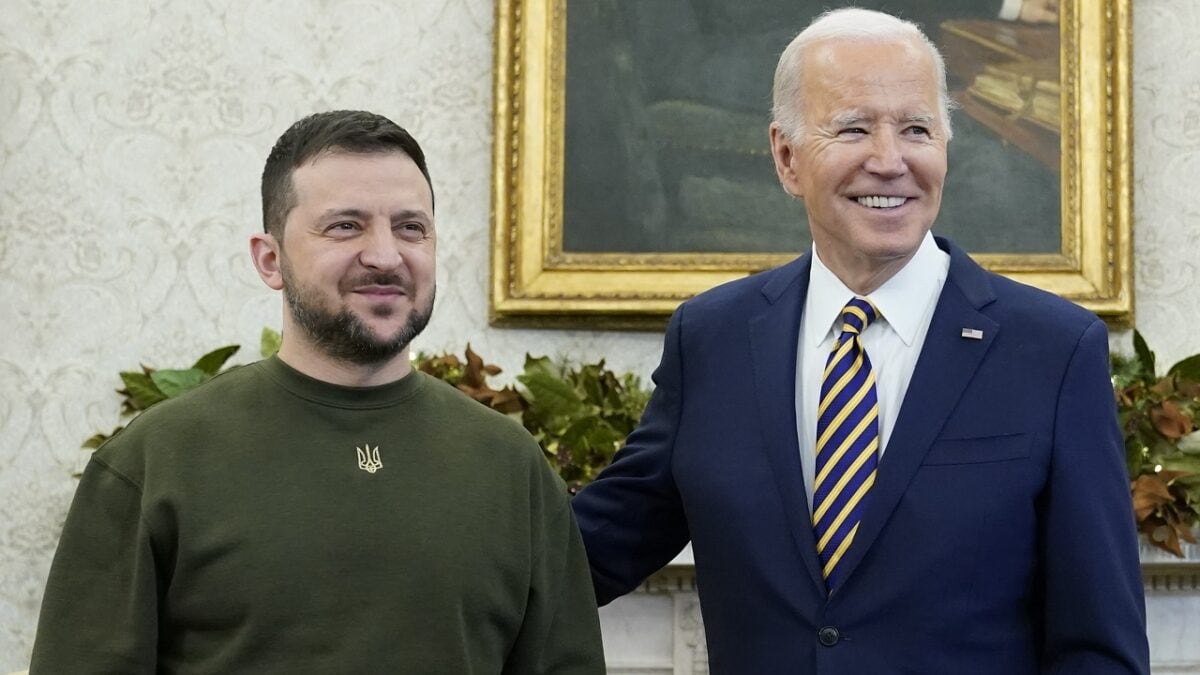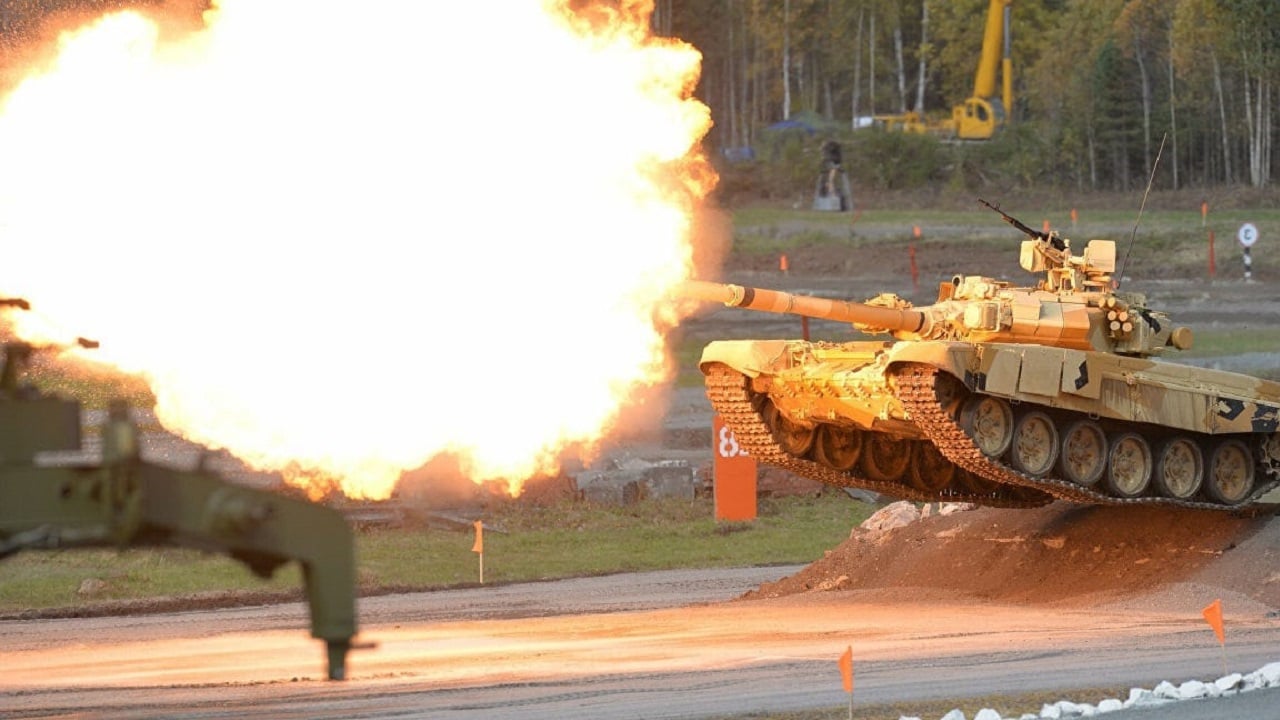Yesterday, Ukraine President Volodymyr Zelenskyy delivered an address to a joint session of Congress, thanking the United States for its support and calling for an additional commitment to the war effort. President Zelenskyy’s trip was planned with great secrecy, or at least great deference from the press.
(Subscribe to Our YouTube Channel Here)
The visit was announced only a day before the speech, although all sides admitted that preparations had been underway for some time. Although we do not as of yet have a sense of the impact of the visit, it has appeared live on several major networks thus far and seems to have won rave reviews.
Zelenskyy Wows Congress
Zelesnskyy accomplished several important goals. He framed Ukraine’s struggle in the historical experience of the United States, comparing the defense of Bastogne during the Battle of the Bulge with the tenacious defense of Bakhmut in eastern Ukraine.
He also invoked the Battle of Saratoga (possibly to the mystification of the greater part of the American audience with weak recollection of the major events of the Revolutionary War). Zelenskyy put an exclamation point on the comparison by bringing a Ukrainian battle flag from the front and giving it to the US Congress.
Zelenskyy pointedly reminded Congress that American soldiers would be unnecessary as long as Ukrainian soldiers were available to drive new tanks and fly new planes, two systems that the United States has not yet transferred to Ukrainian control.
Zelenskyy also emphasized that Western aid for Ukraine was not charity but rather investment. Much of the criticism of Zelenskyy and of the broader Ukrainian war effort within the United States has focused on cost.
Zelenskyy also put forward his ten point proposal for peace negotiations between Russia and Ukraine, perhaps out of sensitivity towards criticism of Kyiv’s sometimes maximalist war aims.
The proposal, which would envision a full Russian withdrawal and extensive Russian reparations, has little chance of moving the needle in its current form, but it is intended to offer some indication of Kyiv’s flexibility.
Discussion of peace negotiations in this context may also serve to assuage Europe’s frayed nerves on Ukraine’s willingness to at least think about how to end the war.
Zelenskyy the New Churchill?
The speech evoked comparison with Prime Minister Winston Churchill’s speech to Congress on December 26, 1941. In that speech Churchill welcomed the United States to the global war effort against the Axis, emphasizing his own long-term connections with the US, and detailing the challenges that the two countries would face along the way to ultimate victory.
Both Churchill and Zelenskyy emphasized that the United States already had skin in the game with respect to the war, and that the future of the US depended on the success of its allies on the battlefield.
Churchill’s speech wasn’t much longer than Zelenskyy’s in terms of the time of delivery. However, the fluidity of Churchill’s language (along with somewhat fewer interruptions) meant that he could fit in twice as many word (for what it’s worth, Zelenskyy the comedian got fewer laugh lines than Churchill).
How Ukraine Thinks About War
One comment, in particular, can be understood as a way to understand how Ukraine thinks about the war.
Much as Churchill blamed Japan’s decision to launch the war on a power-mad clique of soldiers with little popular support, Zelenskyy said that Russians must free their own minds from the Kremlin. Both of these represent a call-out to democratic solidarity and to the idea that fundamentally the collision between democracy and autocracy is not as much a battle between nations as a fight between ideologies.
This ideological grounding helps to make the stakes clear for the United States, while sidestepping difficult questions about regime change in Russia and Russia’s long-term relationship with the West.
What Happens Now in Ukraine?
We should be careful not to overstate the impact of Zelenskyy’s visit to the United States. Given the outcome of the midterms and the express commitment of the Biden administration to maintain support for Ukraine, it was unlikely that US policy towards the war was going to shift dramatically against Kyiv.
But an address of the kind that Zelenskyy just gave should be understood at part of the Biden administration’s toolkit for maintaining the Ukraine policy that it wants. It reminded Americans of the nature of the conflict and of their role in it, and gave internationalist Republicans in Congress a strong set of reasons for continuing support.

Volodymyr Zelensky and Biden. White House Handout.
The speech also, we should not forget, serves as a message to Moscow that American support for Ukraine remains sound and that the Russian war effort cannot expect an easy time over the next year.
More: MAGA Needs To Move on From Donald Trump
More: Would Putin Dare Use Nuclear Weapons in Ukraine?
More: Putin’s War Machine Won’t Fight in Ukraine?
A 19FortyFive Contributing Editor, Dr. Robert Farley has taught security and diplomacy courses at the Patterson School since 2005. He received his BS from the University of Oregon in 1997, and his Ph. D. from the University of Washington in 2004. Dr. Farley is the author of Grounded: The Case for Abolishing the United States Air Force (University Press of Kentucky, 2014), the Battleship Book (Wildside, 2016), Patents for Power: Intellectual Property Law and the Diffusion of Military Technology (University of Chicago, 2020), and most recently Waging War with Gold: National Security and the Finance Domain Across the Ages (Lynne Rienner, 2023). He has contributed extensively to a number of journals and magazines, including the National Interest, the Diplomat: APAC, World Politics Review, and the American Prospect. Dr. Farley is also a founder and senior editor of Lawyers, Guns and Money.

